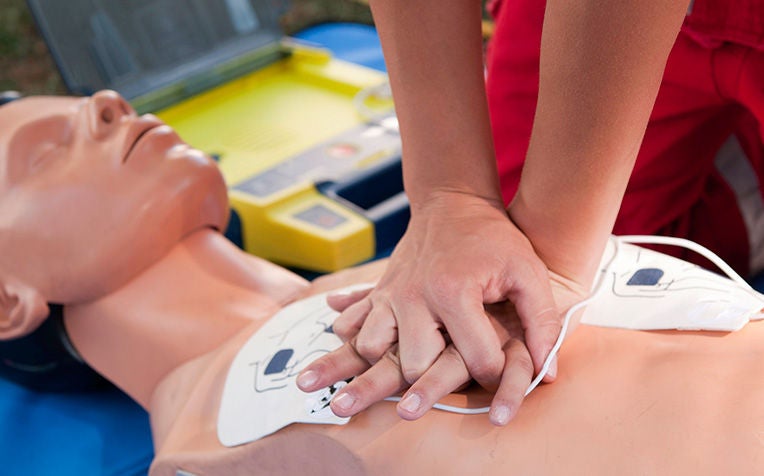
With the DARE programme, children in Singapore primary schools are being taught CPR skills.
DARE programme: What now?
The Dispatcher Assisted first REsponder (DARE) training programme is relatively new, having had its pilot run in April last year. Results of surveys done among the students who have completed the course are helping the Unit for Pre-hospital Emergency Care (UPEC) team to analyse how often they will need training.
For now, the training is being conducted once at the primary, secondary, junior college or Institute of Technical Education and similar levels, so students will get to attend the programme at least once in their school life. However, the DARE programme is not exclusively for children.
It will be taught in workplaces and used in reaching out to the community at large, said Dr Jade Kua, Programme Director of DARE, UPEC, and Consultant, Department of Emergency Medicine, KK Women’s and Children’s Hospital (KKH), a member of the SingHealth group. She described it as “a community outreach project”, where “we teach everybody from little children to the elderly and caregivers”.
DARE to act in an emergency
After getting their Dispatcher Assisted first Responder (DARE) training in school, St Anthony’s Primary School students Harshil Gupta and Elby Joseph Roy, both 11, confidently stated that they would be able to do cardiopulmonary resuscitation (CPR) and use an automated external defibrillator (AED) in an emergency.
“I’ve now been taught how to do this properly,” said Harshil. “We must be able to save someone’s life on the road or on the pavement, wherever it is, whenever it happens,” said the boy, who only about a week before getting his training, saw an AED being used in an actual emergency near his home. “I saw this man unconscious and another man was near him and doing CPR. And then he pulled out the AED machine, and did everything,” Harshil said.
Sudden cardiac arrest myths and facts
Cardiac arrest can happen - and often, suddenly - to anyone, contrary to popular misconception.
| Myth | Fact | |
|---|---|---|
| Gender | male | male or female |
| Age | old | any age |
| Bystander | victim is a stranger | likely to be a family member or friend |
| Medical history | heart attack | often no history of heart problem |
| Symptoms | chest pain, dizziness | sudden, often no symptoms |
Ref: Q15
Contributed by














